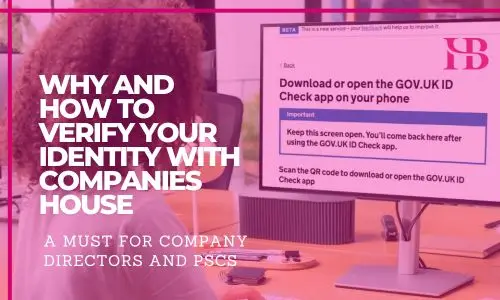The success of our hospitality and service industries is driven by a diverse and exceptionally talented workforce. Starting Tuesday, 1st October, new laws will come into effect ensuring workers receive 100% of the tips they’ve earned.

New Laws Protect Workers’ Tips: What You Need to Know
- New laws ensuring workers keep all of their hard-earned tips are now in effect
- These changes are expected to boost wages, putting £200 million back into workers’ pockets
- This comes ahead of the Employment Rights Bill, which will further strengthen workers’ rights and ensure fair pay
The Employment (Allocation of Tips) Act, introduced last year, is now live along with a statutory Code of Practice for fair and transparent tip distribution.
How the Employment (Allocation of Tips) Act Will Boost Wages
Under the new rules, employers must pass all tips, gratuities, and service charges directly to workers without making any deductions.
From Tuesday, 1st October, workers can take employers to an employment tribunal if tips are withheld. While most businesses already pass tips to staff, these laws aim to stop the small number of businesses that still engage in unfair tipping practices.
Employers who break the law could face fines or be ordered to compensate staff. It’s estimated that these changes will put around £200 million back into workers’ pockets, money that would otherwise have been kept by employers.
This legislation is designed to build trust between customers and businesses and ensure fair treatment for all workers.
What Employers Should Do Now: Ensuring Compliance with New Tipping Laws
At HB Accountants, we encourage all operators to review the new guidance and ensure their policies comply with the law.
Gov.UK have published guidance for employers and workers on the fair and transparent distribution of tips.
The information contained above is for general guidance purposes only. Whilst every effort has been made to ensure the contents are accurate, please note that each individual has different circumstances and it is essential that you seek appropriate professional advice before you act on any of the information contained herein. HB Accountants can accept no liability for any error
Read Our Latest Blogs Below
- HB Accountants Leads Installation of Life-Saving Defibrillator in Rye House, Hoddesdon
 A potentially life-saving public access defibrillator has been installed in the Rye House area of Hoddesdon, made possible by local business HB Accountants, in partnership with local charity, Hearts for Herts, and a generous donation from Plumpton House landlord Clive Martin. HB Accountants’ fundraising had personal inspiration driving their mission.
A potentially life-saving public access defibrillator has been installed in the Rye House area of Hoddesdon, made possible by local business HB Accountants, in partnership with local charity, Hearts for Herts, and a generous donation from Plumpton House landlord Clive Martin. HB Accountants’ fundraising had personal inspiration driving their mission. - Cyberattacks – why FDs and CIOs need to collaborate
 The growing threat of cyberattacks remains for all UK businesses. It could result in Cyber Vandalism – such as the publication of a fake terror attack at UK stations thanks to an admin error that impacted National Rail, fake voices and images – known as a deepfake attack – scammed the British design firm Arup … Continue reading
The growing threat of cyberattacks remains for all UK businesses. It could result in Cyber Vandalism – such as the publication of a fake terror attack at UK stations thanks to an admin error that impacted National Rail, fake voices and images – known as a deepfake attack – scammed the British design firm Arup … Continue reading - Why and How to Verify Your Identity with Companies House – A Must for Company Directors and PSCs
 From 2024 onwards, Companies House has introduced important changes as part of the Economic Crime and Corporate Transparency Act. One of the biggest changes is the requirement for certain individuals to verify their identity to obtain a VIN number. This key step is to improve corporate transparency and tackle economic crime in the UK.
From 2024 onwards, Companies House has introduced important changes as part of the Economic Crime and Corporate Transparency Act. One of the biggest changes is the requirement for certain individuals to verify their identity to obtain a VIN number. This key step is to improve corporate transparency and tackle economic crime in the UK. - HB Accountants Launches Inspiring Work Experience Initiative Across Borough of Broxbourne and We’re Just Getting Started!
 We’re thrilled to announce that the HB Accountants Work Experience Programme has officially launched giving local students the opportunity to rotate through five different businesses over their week experiencing the workplace.
We’re thrilled to announce that the HB Accountants Work Experience Programme has officially launched giving local students the opportunity to rotate through five different businesses over their week experiencing the workplace. - Hello from Livingstone! Talking to Gertrude
 Sponsoring a university student in Zambia via the charity African Impact Foundation, has been an eye-opening experience for the HB team. Gertrude is studying for her Bachelor of Business Administration in Accounting and Finance at Chalimbana University in Zambia. She took time away from her studies to join a conference call with us and the … Continue reading
Sponsoring a university student in Zambia via the charity African Impact Foundation, has been an eye-opening experience for the HB team. Gertrude is studying for her Bachelor of Business Administration in Accounting and Finance at Chalimbana University in Zambia. She took time away from her studies to join a conference call with us and the … Continue reading

